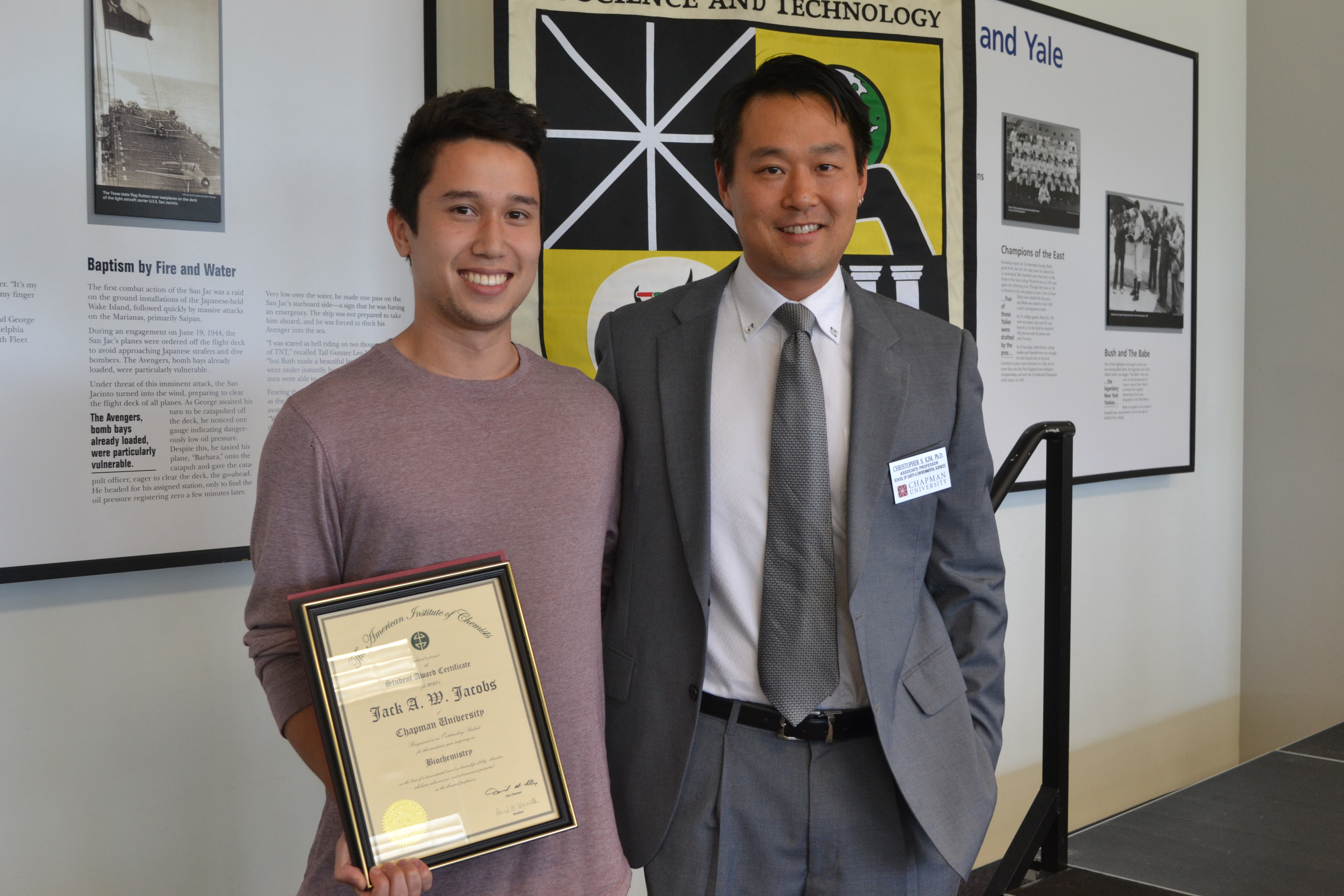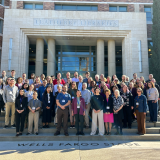
Alumni Focus: Jack Jacobs ’15 Pursues Pharmacology Doctorate at Penn Jacobs seeks a degree from University of Pennsylvania's Perelman School of Medicine, ranked among the country's best medical schools.
October 16, 2015
Yet another Schmid College alumnus is making strides after his undergraduate studies at Chapman, this time in the form of Jack Jacobs ‘15. Jacobs majored in biochemistry and molecular biology at Schmid College, and this fall he began his pursuit of a pharmacology doctorate at University of Pennsylvania’s Perelman School of Medicine, ranked among the country’s best medical schools.
“I think ever since high school… medicine [has] always interested me,” said Jacobs.
While Jacobs’ interest in medicine may be innate, he said his experiences at Schmid College “kick-started” his development in the field. He named his biochemistry class with Dr. Michael Griffin and Dr. Christopher Kim’s Environmental and Geochemistry lab to be the most influential.
“Dr. Kim definitely helped me develop my ability to work independently and think critically,” said Jacobs. “These things are not emphasized in lecture classes nor lab classes, but are probably the most important skills to have in graduate school.”
Kim said Jacobs pushed him to learn more about areas of biochemistry he wasn’t familiar with.
“Jack is a great example of a Chapman undergrad who took full advantage of the independent research opportunities available at our school,” said Kim. “I’m fortunate that he chose to be part of my research group.”

Jack Jacobs ’15 with Dr. Christopher Kim at Schmid College’s 2015 Senior Awards Banquet. Jacobs was honored by with the American Institute of Chemists student award.
Jacobs said he was not originally planning on pursuing pharmacology until Dr. Griffin “opened his eyes to it.” His original plan was to get a pharmacy medical degree.
U.S. News ranks University of Pennsylvania among the country’s top five medical schools for research. The prestigious program encourages students to “create a depth of knowledge” by requiring three core courses, along with any of 11 additional courses in specialized areas of the field.
Only two months into his Ph.D. program, Jacobs has not committed to a specific focus yet. However, he has already worked on using drugs and genetic tools to probe the biochemical mechanisms involved in learning and memory formation.

